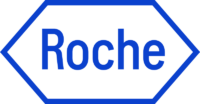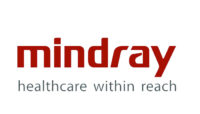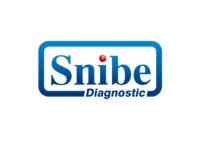Lunch Workshop 14 – EDUW24 – EDUW29
Room C – 13.00/17.00
TITLE: LATEST UPDATES IN LABORATORY MEDICINE
SESSION ONE
CHAIR 1: Prof. Katerina Tosheska Trajkovska
Affilaition: Full Professor of Biochemistry and Clinical Biochemistry, Medical Faculty, University “Ss Cyril and Methodius”, Skopje, R. North Macedonia – Specialist in Medical Biochemistry, EuSpLM – President of MSMBLM – Head of Institute of Medical and Experimental Biochemistry, Medical Faculty, University “Ss Cyril and Methodius”, Skopje, North Macedonia – IFCC & BCLF National Representative
SPEAKER 1: Prof. Khosrow Adeli
Affiliation: Past President, International Federation of Clinical Chemistry and Laboratory Medicine (IFCC) – Head, Clinical Biochemistry, Paediatric Laboratory Medicine, SickKids – Senior Scientist, Molecular Medicine Program of the Research Institute, SickKids – Full Professor, Laboratory Medicine and Pathobiology (LMP), Biochemistry and Physiology, University of Toronto, Canada
SPEAKER 2: Prof. Vincent Sapin
Affiliation: Professor University Hospital of Clermont-Ferrand, France – Head of Biochemsitry and Molecular Genetics Department at University Hospital of Clermont-Ferrand – France SFBC Past-President – President of International Francophonie Federation of Clinical Biology and Laboratory Medicine – Coordinator of the EFLM Working Group « mTBI Biomarkers »
SPEAKER 3: Prof. Olga Ciepiela –
Affiliation: Full Professor of Medical and Health Sciences – Head of Clinical Laboratory of University Clinical Center of Medical University of Warsaw – Deputy Dean of Faculty of Pharmacy for Education of Laboratory Medicine Students – Member of IFCC Task Force on Laboratory Medicine Practice Guidelines (TF-LMPG) – Executive Committee’s Member of the EFLM Division “Science: Value-Based Laboratory Medicine”
SPEAKER 4: Prof. Damien Gruson
Affiliation: Professor, Head of the Department of Clinical Biochemistry, Cliniques Universitaires Saint-Luc, Brussels, Belgium – Research Unit of Endocrinology, Diabetes and Nutrition, UCLouvain – Chair of the IFCC Division on Emerging Technologies – Member of the RBSLM Board of Directors – Member of the SFBC Board of Directors – Fellow of the ESC and Fellow of the HFA
SESSION TWO
CHAIR 2: Prof. A.A. Wiradewi Lestari
Affilaition: Clinical Pathologist and Academic Professor Department of Clinical Pathology, Faculty of Medicine, Universitas Udayana Ngoerah Hospital Bali, Indonesia – Executive Board Member of Indonesian Association for Clinical Chemistry – Head of Genomics Section, Integrated Laboratory, Ngoerah Hospital Bali, Indonesia – President, Indonesian College of Clinical Pathology
SPEAKER 5: Dr. Endang Hoyaranda
Affiliation: APFCB Immediate past president – IACC Board Member – The President Director of Prodia Group Holding Company
SPEAKER 6: Prof. Minodora Dobreanu
Affiliation: Vice presidentof AMLR (Romanian Associationof Laboratory Medicine) – Head of Department of Laboratory Medicine, Emergency Clinical County Hospital, Targu Mures, Romania – Full Professor, Department of Laboratory Medicine,”George Emil Palade” University of Medicine, Pharmacy, Science and Technology, Targu Mures, Romania
SPEAKER 7: Dr. Sjoerd A.A. Van Den Berg
Affiliation: Laboratory Director (EUSpLM) at Erasmus MC, Rotterdam, The Netherlands – Endocrinologist – Diagnostic Endocrinology Researcher
SPEAKER 8: Dr. Guillermo Santoscoy Ascencio
Affiliation: Clinical Pathologist – Doctor of Science in Molecular Biology in Medicine – President of the Mexican Federation of Clinical Pathology (FEMPAC) – Chief of the Molecular Diagnostics Department, Unidad de Patologia Clinica, Guadalajara, Mexico – CAP Inspector
SPEAKER 9: Dr. In Fong LAM
Affiliation: Specialist in Clinical Pathology, Centro Hospitalar Conde de São Januário (CHCSJ), Macao – Fellow of Pathology Faculty, Macao Academy of Medicine – Member of Council, Infection Control Association of Macao – Member, Macao Laboratory Medicine Association – Member, Macao Health Bureau Doctor’s Association – Member, Macao Physician Society
PROGRAMME:
SESSION ONE
-13:00-14:45 – Chair – Prof. Katerina Tosheska Trjkovska
-13:05-13:30 Pediatric Laboratory Medicine: Innovations and New Insights for Optimal Child Health – Prof. Khosrow Adeli
-13:30-13:55 Blood Biomarkers of Mild Traumatic Brain Injury: Focus on S100B Protein – Prof. Vincent Sapin
-13:55-14:20 Cardiovascular Markers for Monitoring the Dietetic Intervention in Obese and Overweight Patients – Prof. Olga Ciepiela
-14:20-14:45 Cardiovascular Readiness: From Early Detection to Enhanced Prevention – Prof. Damien Gruson
SESSION TWO
-14:45-16:55 – Chair – Prof. A. A. Wiradewi Lestari
-14:50-15:15 How Medical Laboratories Can Maximize Contribution to Sustainability – Dr. Endang Hoyaranda
-15:15-15:40 Diagnostic Approach in Rheumatoid Arthritis -‘Choosing Wisely’ the Serological Tests – Prof. Minodora Dobreanu
-15:40-16:05 Thyroid Hormone Measurements; More Than T3 and T4 – Dr. Sjoerd A.A. Van Den Berg
-16:05-16:30 Impact of Molecular Diagnostics in Cancer Screening, Diagnosis and Prognosis – Dr. Guillermo Santoscoy Ascencio
-16:30-16:55 Human Leukocyte Antigens Associated Drug Hypersensitivity – Dr. In Fong LAM
Learning Objectives:
- Understand the Unique Challenges in Pediatric Laboratory Medicine: Describe the physiological differences in children that impact laboratory testing and interpretation and discuss the importance of age- and sex-specific reference intervals for accurate diagnosis and monitoring.
- Explore Innovations in Pediatric Diagnostic Technologies: Review recent advancements in laboratory technologies, including point-of-care testing, genomic medicine, and multiplex assays, and their implications for improving pediatric healthcare outcomes.
- Promote Best Practices in Pediatric Laboratory Testing: Identify strategies to optimize specimen collection, minimize invasive procedures, and enhance the reliability and efficiency of laboratory testing for pediatric patients.
- Understand the Role of Biomarkers in Early Detection: Explore how cutting-edge laboratory tests and biomarkers can identify cardiovascular risks and facilitate timely interventions in clinical practice.
- Integrate Laboratory Medicine in Preventive Strategies: Learn how laboratory diagnostics contribute to personalized prevention programs by linking biochemical findings to lifestyle and therapeutic adjustments.
- Innovate Through Emerging Technologies: Discuss the integration of advanced laboratory technologies, including point-of-care testing and AI, to enhance cardiovascular disease prevention and management workflows
- Place of the blood biomarkers during the management of mild Traumatic Brain Injury’ patients
- Presentation of the current blood biomarkers of the mild Traumatic Brain Injury
- Presentation of S100B and its place for the management of mild Traumatic Brain Injury
- Point out cardiovascular markers used in cardiac risk assessment, which may be modified by dietetic intervention.
- Possess the knowledge regarding use of myeloperoxidase and hFABP as cardiovascular markers.
- Identify biochemical mechanisms that lead to changes in cardiovascular markers concentration in the process of body-mass reduction based on dietetic intervention.
- Leveraging awareness to healthcare practitioners on the urgent need to contribute to sustainability efforts.
- Updating ways on the ways healthcare can contribute
- Severe cutaneous adverse reactions (SCAR) are serious skin reactions often triggered by medications, and genetic predisposition plays a significant role in their development. Specific HLA alleles, such as HLA-B*15:02 and HLA-A*58:01, have been associated with an increased risk of SCARs, particularly in certain populations. Understanding these associations can enhance pharmacogenetic screening, potentially preventing SCARs through personalized medication choices and improving patient safety in drug therapy.
- Interference in immunoassays cannot be assessed by spike experiments only.
- Treatment of patients with thyroid hormone transporter problems requires specific immunoassays or mass-spectrometry.
- Harmonisation and/or standardisation of T3 and T4 assays is still lacking, even though a reference measurement procedure is available.
- T3 is not the only bioactive thyroid hormone.


















